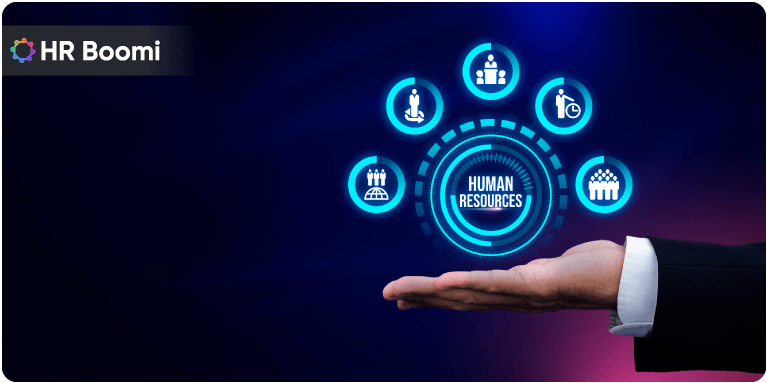
Table of Contents
- The Digital Transformation of HR Processing
- Changing Dynamics of Talent Acquisition
- Skill Requirements in the Age of Automation
- The Role of HR in Navigating Global Labor Market Dynamics
- The Gig Economy and the HR Challenge
- The Importance of Data-Driven HR
- The Challenge of Ensuring Compliance
- Conclusion
Worldwide industrialization has ushered in a new technology of transformative alternative, affecting almost every side of our world. One vicinity profoundly impacted by this monumental shift is Human resources (HR). The rise of industrialization, with its technological advancements, elevated connectivity, and financial reshaping, has introduced big alterations in how organizations control their body of workers.
This informative exploration ambition to delve into the problematic approaches of industrialization throughout the globe has redefined HR processing. From the adoption of digital technologies to the converting dynamics of the hard work market, this paper will offer a complete analysis of the shifts in HR practices. By inspecting relevant facts and referencing credible sources, we can unveil the profound modifications taking place inside the area of HR and their implications for the contemporary team of workers.
Statistical Insight: In line with the World Bank, the global industrialization fee has increased progressively, with a full-size uptick in growing economies, inclusive of India and China, contributing to the acceleration of this procedure.
The Digital Transformation of HR Processing
Industrialization is closely intertwined with technological development, and this synergy is leaving an indelible mark on HR processing. Digitalization has streamlined and automatic many HR methods, from recruitment to overall performance reviews. For example, Applicant tracking systems (ATS) have revolutionized how groups screen and rent candidates. Those structures successfully sift through resumes, matching process necessities with applicant qualifications. In step with a current survey by using Deloitte, 56% of businesses have integrated AI and data analytics into their HR tactics, enhancing their hiring and brain control skills. Deloitte – Global Human Capital Trends.
Changing Dynamics of Talent Acquisition
Global industrialization has given upward thrust to an extra interconnected international, permitting organizations to faucet into a global brain pool. With the ability to outsource and rent far-off workers from throughout the globe, agencies are locating intelligence where it is of maximum high quality. This shift in Genius acquisition has no longer only diverse workforces but has additionally made opposition for top Genius fiercer than ever.
In step with the sector financial forum, over 44% of businesses globally already use remote work to get admission to a broader intelligence pool. This figure is predicted to jostle upward appreciably within the coming years, remodeling HR techniques to deal with the needs and expectations of a distant group of workers.
World Economic Forum – Remote Work
Skill Requirements in the Age of Automation
As industrialization ushers in the era of automation, the talent sets required for the team of workers are evolving. Repetitive, manual tasks are more and more being taken over by way of machines and software programs. In reaction, HR departments face upskilling and reskilling personnel to maintain them relevant in this computerized panorama.
A McKinsey & Business Enterprise record indicates that by 2030, as many as 375 million employees globally may additionally need to exchange their occupations by automation. This highlights the urgent need for HR professionals to broaden techniques for continuously getting to know and develop to ensure their staff stays adaptable and aggressive.
McKinsey & Company – Jobs Lost, Jobs Gained
The Role of HR in Navigating Global Labor Market Dynamics
International industrialization is likewise reshaping the exertions market. The movement of human beings across borders for paintings is on the upward jab, as financial opportunities in numerous areas of the world range. HR departments are grappling with handling diverse workforces, ensuring compliance with worldwide hard work laws, and addressing cultural differences in the administrative center.
According to the international exertions enterprise, there are over 164 million global migrant people globally. HR is at the forefront of ensuring those employees are integrated correctly into the personnel while respecting their rights and cultural backgrounds.
International Labor Organization – Migrant Workers
The Gig Economy and the HR Challenge
Industrialization has given beginning to the gig economy, in which people tackle quick-time period or freelance roles as opposed to traditional full-time positions. At the moment, HR departments are faced with coping with a greater brief workforce. These gig employees have one-of-a-kind expectancies and wishes, necessitating a shift in HR strategies.
According to a look at Intuit, by 2020, 40% of American workers would be engaged in gig paintings. This trend forces HR experts to broaden revolutionary approaches to hiring, managing, and preserving gig people.
Intuit – Gig Economy Growth
The Importance of Data-Driven HR
With the growing complexity of HR control because of worldwide industrialization, data-pushed decision-making has become crucial. HR analytics and facts science are now indispensable in understanding workforce dynamics, predicting trends, and aligning HR strategies with broader organizational goals.
A look by p.c found that 60% of businesses are investing in HR analytics to make more knowledgeable selections regarding their personnel. Data-pushed HR now improves decision-making and enhances employee enjoyment by allowing greater personalized HR services.
PwC – HR Technology Survey
The Challenge of Ensuring Compliance
International industrialization can often manage more than one legal jurisdiction, each with its hard work, legal guidelines, and policies. HR departments must stay abreast of these guidelines, ensure compliance, or face large felony and economic repercussions.
For instance, the European Union’s popular data safety law (GDPR) greatly affects HR statistics control. Non-compliance can result in hefty fines, making it crucial for HR to navigate the complex net of world rules.
Conclusion
International industrialization has sparked a revolution in HR. It has reshaped the method companies lease, manipulate, and maintain talent. From the adoption of digital technologies to the changing dynamics of the exertions marketplace, HR is evolving to fulfill the desires of a rapidly changing global. HR experts should adapt to this new landscape, leveraging information and generation and staying attuned to shifting hard work market dynamics.
As we flow similarly into the age of industrialization, the position of HR in shaping the body of workers of destiny will only become more pivotal. It is an exciting and hard time for HR, one filled with opportunities for innovation and growth inside the ever-evolving international of labor.
Recent Posts
-

In-house vs. Outsourced Payroll: Pros and Cons
-

Mastering Talent Retention: A Corporate Challenge
-

What is employer branding and how to apply it in your company?
-

The Significance of Employee Communication Within
-

What is time management and why is it important?
-

Net salary: what is it and how is it calculated?
-

Enhancing Employee Experience: Strategies for Excellence
-

10 Best Gifts to Boost Sales Channels
